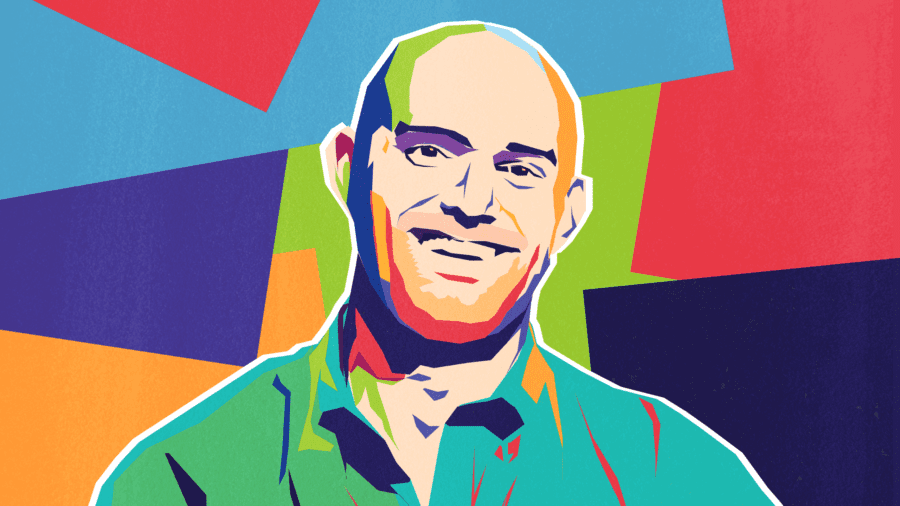
Discover Your “Procrastinator Type” To Reverse Your Unproductive Habits TODAY
Do you have trouble with procrastinating?
We all do at some point or another. Whether it’s a pile of unfinished craft projects, the novel you keep putting off, or the work presentation you’ve been avoiding, we’ve all got something unfinished that’s lingering in the background of our minds.
It’s strange because we know it’s not good for us, but we continue to do it. Why? It turns out people procrastinate for very different reasons – from perfectionism to sensation-seeking to being unable to say no.
Not every procrastinator is lazy or struggles with a lack of motivation or discipline. In fact, in some cases, procrastinators are extremely hard on themselves and have too much self-discipline — the kind that turns into self-punishment.
Don’t judge yourself for being a procrastinator. Instead, find out why you procrastinate and what you can do about it.
What Type of Procrastinator Are you?
Everyone procrastinates, but they don’t all procrastinate for the same reason. Everyone’s different. Some people’s procrastination is mild enough to simply be an annoyance, while for others it’s having a damaging effect. One procrastinator might be motivated by anxiety, while another would rather just daydream or have fun than chip away at a boring task.
Most procrastinators will fall under one of five categories. It’s important to understand which one you fall under, because that will reveal your motivations, habits, and the best ways to get a handle on your procrastination.
The Perfectionist
For the perfectionist, every single detail must be in flawless order for it to feel complete. They’ll hone in on any errors, unable to move forward onto the next task until they’ve corrected any and all mistakes.
While being detail-oriented can be an advantage, being obsessed with details is a recipe for procrastination and missed opportunities. That’s because the pressure of being a perfectionist means even thinking about accomplishing a project will stir up a lot of negative emotions like stress, fear, or dread.
This means that perfectionists put things off until the last minute. Or, they may not ever start their most important projects, like their book. They might wait for the perfect conditions or to be perfectly prepared, both of which never come. Lastly, they might start a project but spend far too long on certain aspects of it, leading to missed deadlines.
To recap, perfectionists tend to:
- Be obsessed with details
- Be chronic overthinkers
- Have high stress levels
The Worrier
The overthinker is smart and can envision all sorts of possible outcomes. Unfortunately, those possible outcomes tend to be negative. As with all worriers, the procrastinating worrier has a tendency to come up with worst-case scenarios. They build things up in their mind, putting weight onto a wide variety of details.
“What if?” is the repeating refrain in the worrier’s mind. They may also be an overthinker, like the perfectionist, and spend too long making decisions.
Sometimes, worrying can be a symptom of low self-confidence or high self-doubt. This can also depend on the type of task. If you’re new to an industry or company, don’t have experience in an area, or are still developing your skills, you’ll probably be more prone to procrastination.
To recap, worriers tend to:
- Doubt themselves
- Imagine worst-case scenarios
- Be driven by emotion
The Busy Bee
Another procrastinator motivated by anxiety, the busy bee practically never says no. They may overcommit, expect way too much of themselves, and try to juggle too many things at once. They don’t want to disappoint other people.
It doesn’t occur to the busy bee to ask for a deadline extension, say no to a project, or withdraw from a social event. Their standards are so high that they don’t develop realistic expectations around how much they can handle. Eventually, with so many spinning plates in the air, something is bound to come crashing down.
To recap, busy bees tend to:
- Take on too much
- Be people pleasers
- Have chaotic, overly busy schedules
The Dreamer
Now we’re in an entirely different ballpark when it comes to procrastinators. Dreamers aren’t so much worried about performance as they are inexperienced or unwilling to get down with the nitty-gritty details of life. Even the grandest, most beautiful visions require work that’s often boring, repetitive, uninspiring, or just plain hard.
For example, an aspiring fashion designer with talent and vision longs to design her own clothing line, but she’s not willing to do the unglamorous, repetitive, or overwhelming aspects of starting a business, making contacts, or creating a website.
Not only does she resist it, but she doesn’t have a clear plan of attack or strategy to handle tasks she’s not familiar with. She may hope to rely on talent and visions alone, but unfortunately, that’s simply not enough when it comes to building a successful business.
To recap, dreamers tend to:
- Be ungrounded
- Feel unengaged with practical or tedious work
- Lack routines or strategy
The Sensation Seeker
Some people love the rush of adrenaline they get from staying up all night to finish a project. In college, they probably crammed for finals in the days leading up to them or stayed up all night finishing a research paper. If they’re talented, and they can handle it, this can work well, but at what cost?
The adrenaline rush might make work more enjoyable, but all those stress hormones are hard on your body. Plus, you run the risk of pushing things too far, overestimating what you can get done, and failing at it or missing a deadline. Also, is the work you’re producing in that state really as good as it could be if you’d just given yourself a little more time?
To recap, sensation seekers tend to:
- Enjoy an adrenaline rush
- Feels they do their best work at the last minute
- Be unorganized
Join In 200 Million+ On The Journey to Greatness
Dealing With Procrastinating the Right Way
If you’ve been procrastinating for a while, you might think you’re set in your ways. But this couldn’t be further from the truth! You can overcome this habit and start living a more productive life filled with plenty of soul-nourishing projects, hitting your deadlines easily and calmly, and leading a more serene existence.
#1: Break down projects into small tasks
Overwhelming tasks are a recipe for procrastination, no matter which type of procrastinator you are. If you’re a dreamer, you may not even know where to start. If you’re a busy bee, you’ve probably got too much going on. And if you’re a perfectionist or worrier? Forget about it.
That’s why it’s super helpful to break big projects down into manageable tasks and even set separate deadlines for them. So, if you want to start a website for your holistic healing business, you’ll want to begin with things like deciding which platform to use, picking out a template, coming up with a name, adding content, and so on.
The easier things are the better, so don’t be afraid to really break those tasks down into tiny chunks, even things like: “Read one article about websites.” Make it so simple that you could do it right now without having to think too much. Make it so easy, you don’t have an excuse not to do it.
#2: Perfect the art of list making
One valuable tool you can use when breaking projects down is list making, which also happens to be fun. If you’re a sensation seeker or dreamer, this just might get you going — crossing tasks off our list actually releases the feel-good chemical dopamine.
Believe it or not, there is an art to list making. Don’t just write vague statements on your list. Each item should be specific, concrete, and easy to do, especially the first items on your list. This can help keep you motivated as you get that flood of feel-good hormones right away in the first tasks on your list.
If you don’t understand how to do something on your list, break it down even further. If your first task is “put together the new desk,” you’ll instead want to write “read directions.” The simpler and more straight forward things are, the faster you can check things off, and the more momentum you’ll get going
#3: Time yourself
You can also gamify your project even more by timing yourself. If you’re doing a work project, give yourself 30 minutes for research, 30 minutes for an outline, and 30 minutes for each segment of the project. Sensation seekers will get that rush they like, busy bees will learn their limits, and dreamers will give themselves much-needed boundaries and strategy.
You can apply this same strategy of turning mundane tasks into challenges by giving yourself rewards for accomplishing your to-do list or assigning yourself points for making record time on a chore.
#4: Put your phone away
We all know how distracting our phones are. Unfortunately, as with many things in life, we’re still attracted to doing things we know are bad for us. So, just eliminate the temptation altogether. Turn your phone on airplane mode, stick it in a drawer, or leave it in the other room. You will be amazed at what you can get done when you’re not switching focus multiple times per hour.
It can take 30 minutes to regain your focus after you’re distracted, so consider how much time you’ve lost if you check your phone several times an hour.
#5: Limit decision making with routines
Procrastination often has to do with overwhelm. It takes mental bandwidth to navigate large projects or tasks we don’t have any experience in. Decisions, trial and error, assessing your progress and planning ahead — all of that takes up a lot of mental space.
Now, factor in all of the other decisions we have to make on a daily basis, and you can see where the brain might simply say Enough. This is too much, so I’m going on vacation. Check back in with me later.
To avoid this, eliminate as much decision making as you can in your daily life. Create routines to ensure you get everything you need done without having to think about it. Maybe Monday is yoga day, and you go for runs on Tuesdays and Thursdays. You always have the same healthy smoothie in the mornings, and you lay out your clothes the night before. Maybe you have the same nice evening routine of turning off Netflix and reading in bed for an hour.
Making these tasks automatic will save you precious mental bandwidth and give you a sense of stability and routine.
#6: Have a plan for tough tasks
Much like decision making, new and difficult tasks are often the first stumbling blocks we cave into as procrastinators. Have you ever completely abandoned a project you were working on because something came up that you didn’t know how to do and didn’t want to learn? You switched to something new, but that unfinished task is there, lingering in the corner of your mind.
To avoid this, be proactive about how you handle such hurdles. Have a designated plan of action. Break it down into steps you can easily follow, then go for it. Don’t aim for perfection.
For example, your plan of action could be to read one article about it, try one aspect of it, and then assess it. So, if you’re trying to learn a new project management system, and just looking at all the widgets and buttons on the screen makes your head spin, you might start with an article on what it’s used for, try creating a project on there, and then see how you did.
You Can Overcome Procrastination
Most people procrastinate to some degree, but it’s not always for the same reason. Our procrastination might stem from very different things. For one, it might be anxiety and the need to make everything perfect. For others, it could be a love for adrenaline and doing things at the last minute. But there’s one commonality: Procrastination doesn’t make for the most peaceful life, nor for a productive one. Deadlines are stressful, and leaving things until the last minute will take its toll on you. But if you can break things down into small projects, master list making, and put your phone away among other things, you can overcome it.
Greatness Authors
Greatness Authors is a collection of writers, thinkers, curiosity experts, and students of the world who are committed to bringing you the most up-to-date, impactful, and inspiring information surrounding Greatness topics.

Redefining Poetry: How Instagram Sensation Rupi Kaur Showed That Poetry Is for Everyone

The 7 Best Vitamins to Naturally Promote Better, Uninterrupted Sleep According to Shawn Stevenson

The Science of Forming Healthy Habits & Letting Go of Bad Ones, According to Author James Clear

9 Signs You Have Imposter Syndrome at Work and How to Overcome Performance Insecurity

Olympian Yusra Mardini’s Incredible Story of Resilience, Rescue, and Refugee Rights










